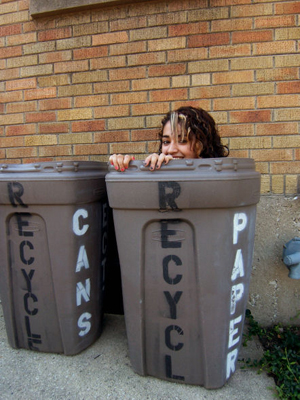All Nonfiction
- Bullying
- Books
- Academic
- Author Interviews
- Celebrity interviews
- College Articles
- College Essays
- Educator of the Year
- Heroes
- Interviews
- Memoir
- Personal Experience
- Sports
- Travel & Culture
All Opinions
- Bullying
- Current Events / Politics
- Discrimination
- Drugs / Alcohol / Smoking
- Entertainment / Celebrities
- Environment
- Love / Relationships
- Movies / Music / TV
- Pop Culture / Trends
- School / College
- Social Issues / Civics
- Spirituality / Religion
- Sports / Hobbies
All Hot Topics
- Bullying
- Community Service
- Environment
- Health
- Letters to the Editor
- Pride & Prejudice
- What Matters
- Back
Summer Guide
- Program Links
- Program Reviews
- Back
College Guide
- College Links
- College Reviews
- College Essays
- College Articles
- Back
Coral Reefs MAG
When I was eight years old, my family moved from our house onto a small sailboat because my parents wanted to travel with my brother and me before we were too old. We sailed up and down the East Coast from foggy Maine to Miami, then on to the Bahamas and the Dominican Republic. We were home-schooled by my mother, who believed strongly in field trips as a way of learning. So, at least once a week, we would put away our books, get in our dinghy, and putt-putt away to some new, exciting place. When we were in the Bahamas, we would frequently head for a nearby coral reef with snorkeling gear. The precarious balance and the beauty of the reefs intrigued me and sparked an interest in this complex ecosystem.
Coral reefs are really colonies of tiny animals called coral polyps. These persevering animals anchor themselves to a rock (or other structure) and over thousands of years they build up, the new polyps attaching themselves to the shells of the old polyps. Eventually the skeletons build up into a limestone structure called a reef. These coral polyps need warm, clear water to survive, since they depend on algae for food and the algae need sunlight to photosynthesize. Coral reefs provide homes for many creatures that are adapted specifically to reef life, like the parrotfish. The diversity of life in the reefs is rivaled only by rainforests.
There are many dangers to these fragile coral reefs. They can be over-fished, which disrupts the careful balance between species. Some methods of fishing directly harm the reefs, like using cyanide and dynamite to kill large numbers of fish. These methods not only destroy an entire fish population, they also destroy the coral reefs.
Pollution also harms these reefs. Many chemicals, including oil, are deadly. Sewage spills or silt from land also block the sunlight from reaching reefs that provide many nutrients. This kills algae and then the coral dies, too. This in turn impoverishes the people who depend upon the coral for their livelihood, including divers, tour guides, and fishermen. An entire ecosystem is destroyed.
Unfortunately, it is much easier to destroy coral than to protect and save it. Some governments have mapped their reefs and are monitoring conditions.
There are also many private organizations helping to monitor local reefs. In order really to save our valuable reefs, though, we need to raise society’s awareness so that people know what they can do to help. Organizations like the Save the Reef Foundation (in the Bahamas) help by educating children, who in turn educate their parents. But we must expand these organizations. Governments should place stricter regulations on reef use. The Turks and Caicos Islands heavily fine boats that do not use approved moorings when near coral reefs. Fishermen who do not have a permit are severely punished, even jailed. These regulations may seem harsh, but they have protected the Turks and Caicos’ reefs, which are in better condition than in many countries and should serve as an example.
We must save these reefs! Otherwise, we will lose an entire ecosystem. Medicines will never be discovered because the triggerfish are all gone. Young scientists will never be inspired to become marine biologists because they didn’t go snorkeling in Florida. Do we want to tell our children that they will never see a coral reef because we didn’t save them?

Similar Articles
JOIN THE DISCUSSION
This article has 2 comments.
This is a good article. I love hearing that other teens have a concern about animals and the environment. I hope as many people as possible can seriously consider adopting a more eco-friendly lifestyle.

0 articles 0 photos 12292 comments